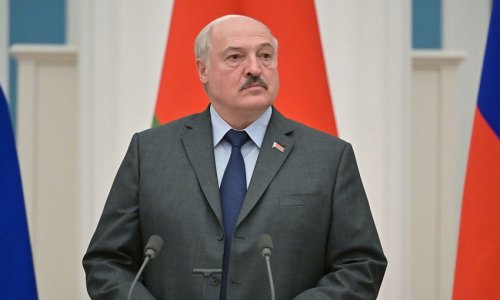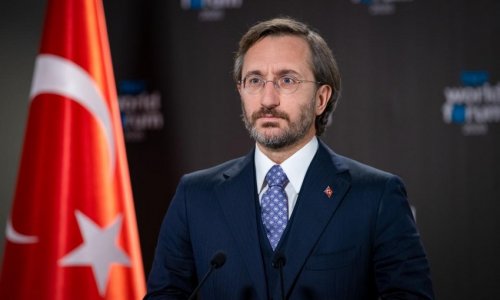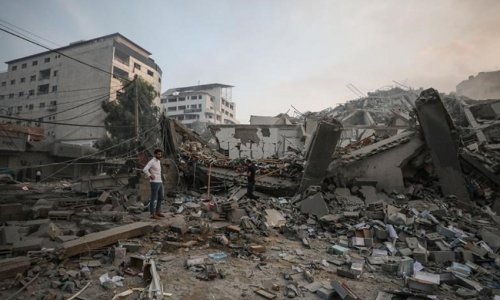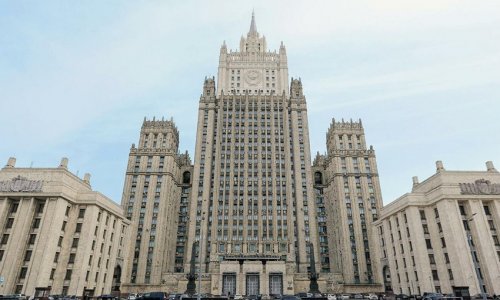In a new video, Abu Muhammad, speaking in English interspersed with Arabic phrases, claims to have lived in the United States for 10 or 11 years before leaving to join the jihad in Syria. The video was posted just days after Homeland Security Secretary Jeh Johnson warned that extremists in Syria were trying to recruit Western-born fighters who could use their American or European passports to return to their home countries and carry out new strikes. As a result, he said, "Syria has become a matter of homeland security."Fortunately for the U.S., Abu Muhammad -- who served as an "emir" in a northern Syrian town -- seems more concerned with fighting other rebels than planning an attack against the United States. His remarks, delivered with the flag of the al Qaeda-linked Islamic State of Iraq and al-Sham (ISIS) hanging in the background, denounce what he sees as a conspiracy against his group by rebels affiliated with both the secular-minded Free Syrian Army and other jihadist battalions. While it is impossible to verify that Abu Muhammad is who he says he is or whether he was actually born in the United States, his complaints nonetheless echo ISIS supporters' suspicions about other rebel brigades -- even those ideologically close to them. Abu Muhammad claimed to have served under a commander from Jabhat al-Nusra, al Qaeda's official Syria affiliate. The experience was so disheartening that Abu Muhammad angrily left the group late last year.The problems began, he said, when brigades affiliated with the Syrian Revolutionaries Front, an alliance of FSA brigades, began launching attacks against ISIS. "We heard that the Free Army started attacking our brothers, muhajireen [foreign fighters] from [ISIS]," Abu Muhammad said. "So it became a very big problem for us, our heart was in pain."Abu Muhammad said that he served in Atmeh, a northern Syrian town on the Turkish border. Earlier this year, the top Nusra commander in the town told him that a convoy from the Syrian Revolutionaries Front would be passing through the town to pick up a shipment of Turkish weapons.Abu Muhammad assumed that Ankara was shipping the weapons to the FSA so it would be able to step up its fight against ISIS and its jihadists allies. "Our heart was in pain when these weapons go to these people," he said. "[They] are killing not Bashar al-Assad, but killing our brothers and sisters."Abu Muhammad said that his group, along with fighters from the Salafist rebel brigade Ahrar al-Sham, set up a checkpoint near the entrance to the town and initially forced the convoy to turn back around. The victory was short-lived: Abu Muhammad said that Nusra commanders had all the muhajireen removed from the checkpoint and replaced by local militants.Abu Muhammad then left Atmeh to tend to issues elsewhere. When he returned, he saw that the Syrian Revolutionaries Front convoy had been allowed into the town. "I tried to stop them, [but] they jumped on me and tried to kill me," Abu Muhammad said.For Abu Muhammad, the fact that Nusra leaders allowed the convoy to pick up weapons that were bound for the secular rebels suggested that the jihadists were joining with Turkey in a conspiracy against ISIS. "We tried to say to the emirs, ‘Why are these people doing like this...What's going on here?'" he said. He also believes that Nusra itself had a similar deal with Turkey under which the militants received weaponry from Ankara to use against ISIS.Whether such a conspiracy exists or not, the tensions between ISIS and other rebel brigades Abu Muhammad describes are very real. ISIS was recently driven from parts of the eastern province of Deir Ezzor, with Nusra increasingly involved in the fight against the jihadist group. ISIS suffered a different kind of blow earlier this month when al Qaeda's fugitive leader, Ayman al-Zawahiri, said he was cutting ties with the group because of its ongoing battles against Nusra forces.The experience has left Abu Muhammad seeking vengeance -- not against the United States, but his fellow rebels. "You know, the blood of our brothers is not cheap," he said, wagging a finger into the camera. "Who did this will answer - in this dunya [world] or the hereafter."(foreignpolicy.com)ANN.Az
Before Attacking the West, Syria’s Jihadis Have to Stop Fighting One Another
World
22:28 | 13.02.2014
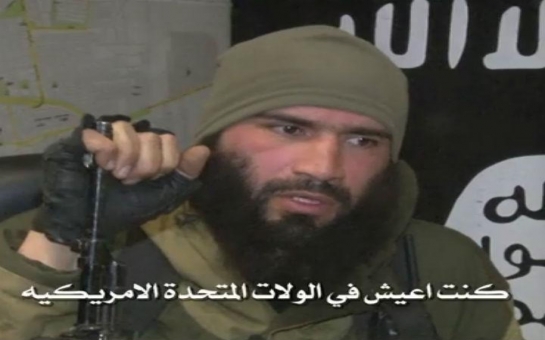
Before Attacking the West, Syria’s Jihadis Have to Stop Fighting One Another
Abu Muhammad al-Amriki -- his last name means "the American" -- is precisely the kind of militant who terrifies U.S. counterterrorism officials.
Follow us !

